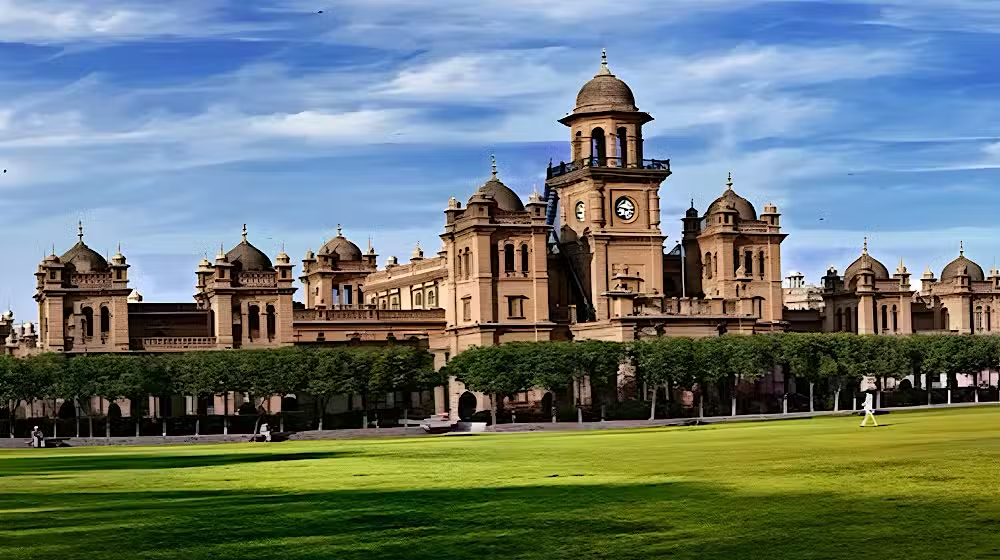Maintain academic neutrality and campus discipline, Islamia College Peshawar has officially enforced a ban on wearing political party attire, badges, and caps within its premises.
The newly issued notification categorically prohibits students from displaying any symbols, logos, or apparel that may indicate affiliation with any political party or movement.
According to the notification, students must adhere to the official college uniform or designated dress code at all times during college hours. Non-compliance will result in disciplinary action, as deemed appropriate by the college administration.
Vice Chancellor’s Secretariat to Remain Apolitical
This policy aims to eliminate political lobbying and undue influence within administrative corridors, reinforcing a neutral and unbiased academic environment.
The announcement has generated a wide spectrum of reactions among the student body and academic staff. While some students see it as an infringement on freedom of expression, others support the decision, emphasizing the need for a non-political, academic-focused environment.
Faculty members have largely welcomed the directive, considering it a necessary step to prevent external political agendas from influencing college affairs.
Islamia College Peshawar, a prestigious institution with a rich historical and academic legacy, has witnessed numerous political movements over the decades.
Recent years have seen a rise in politically motivated activities, often disrupting academic proceedings and polarizing the student community.
This latest notification reflects a broader trend across educational institutions in Pakistan, aiming to curb political influence and restore educational integrity.
Broader Implications for Higher Education in Pakistan
The decision by Islamia College Peshawar is not an isolated incident but rather part of a wider educational reform initiative sweeping through Pakistan.
The objective is to depoliticize educational institutions, ensuring they remain hubs of learning, innovation, and critical thinking, rather than political battlegrounds.
Earlier this year, several universities across the country, including Punjab University and Karachi University, introduced regulations curbing political demonstrations and student group affiliations.
The new policy raises questions about the future of student political engagement. For decades, student bodies have served as training grounds for future political leaders. With such bans, critics argue that youth political education may suffer.
Student leadership and activism can still thrive through non-partisan platforms, such as debating societies, community service initiatives, and academic forums.


